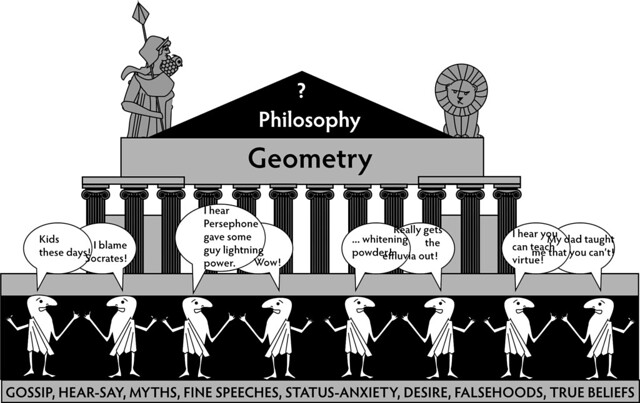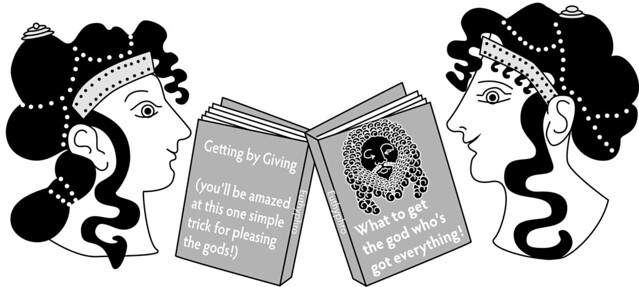Finishing Reason and Persuasion, a Coursera MOOC about Plato
Last week, I completed Reason and Persuasion: Thinking Through Three Dialogues By Plato, a MOOC available on the Coursera platform, taught by John Holbo of the University of Singapore. It was a fantastic class! So I'd like to take some time to explain why I enjoyed it so much.
As you may know, I'm quite fond of MOOCs. However, until now, I'd only taken scientific MOOCs. I stumbled across Reason and Persuasion by accident, looking for a course aimed at improving rhetoric skills. This was one year ago. I didn't have the time to take it back then so I just kept it in the back of my mind. Earlier in September, I started reading the companion book to this class, which is available for free. This increased my interest in the class and I registered myself for the end of September session. Eight weeks later, I've passed the class, with a grade of 98.5%.
So what is this class about? Should one trust philosophy teachers from the internet? Why take a course about texts that are 2400 years old? Has it had any impact on my life? Let's discuss these questions in turn.
What's this class about?
In a nutshell, this MOOC is about everything: how to live a good life, how society works, what justice is, rules, friends, ennemies. The stuff on which it is built is made of Greek history, three dialogues by Plato (Euthyphro, Meno, Republic Book I) and recent authors (Jonathan Haidt, Joshua Greene).
To give you an idea of the contents, you can watch the intro video from 2013.
Is this MOOC any good?
I found this class was amazing. The quality of John Holbo's teaching is top notch. His knowledge of ancient Greece allows him to trace a path through all the complexity of the dialogues.
What's more, the slides he uses to convey the content of the class are superbly illustrated. His images are on flickr, so I'll share two of them with you:
I can definitely recommend this MOOC to anyone who has an interest in philosophy, rhetorics (the Socratic method is awesome at exposing incoherence in your discussion partner), ethics, history. Even if the quizzes are quite difficult, you will get a lot out of it! Also, the morning studying sessions in the bus that brings me to work made for some interesting coffee small talk.
The only regret I have is that the class did not attract many students and the forums felt empty. There were some initial responses but soon after the first weeks, almost no one seemed to be still following. A pity, really!
Any interesting stuff that happened during the class?
During the class, John Holbo used a Batman Begins excerpt to introduce one of the dilemmas found in a Plato dialogue. I then watched the whole Batman movie and started noticing that there are several moral situations worthy of detailed questioning in it. So I wrote a blog post about it. The videos I made can be found here:
Conclusion
If you've read until here, I hope I've made a good argument for taking this MOOC. With all the different classes to choose from, it can be difficult to find the hidden gems. Reason and persuasion is one of these.

